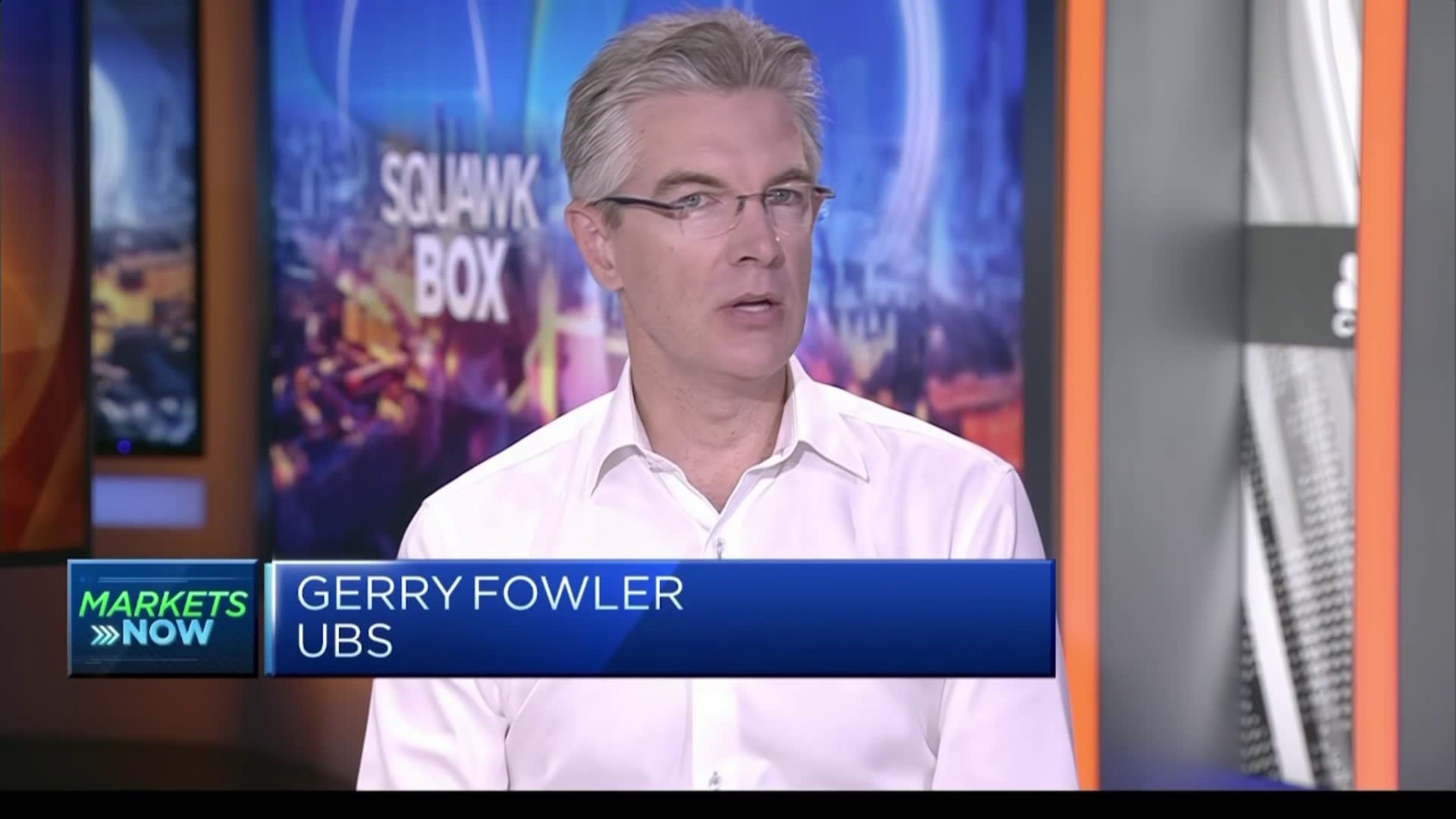
August has been a choppy month for markets, with uncertainty over the health of the global economy sparking a jump in volatility.
At the start of the month, a weaker-than-expected jobs report in the U.S. raised concerns about a potential recession and caused U.S. stocks to slide. Meanwhile, a more hawkish tone from the Bank of Japan led to an unwinding of the yen “carry trade” and saw the Nikkei fall over 12%.
The VIX, a measure of expected market volatility, topped 65 on August 5, up from around 23 the previous trading day. The index then quickly pulled back, and was last trading around 14.5.
This spike in volatility was a “huge overreaction,” Gerry Fowler, head of European equity strategy and global derivative strategy at UBS, told CNBC’s “Squawk Box Europe” on Tuesday.
UBS had been expecting volatility levels to increase from levels seen earlier in the year, he explained, as historically, the combination of declining nominal GDP, interest rate cuts and uncertainty about the jobs market has boosted volatility.

Vix
“So actually, the last couple of weeks have been just what we thought, except the spike we got was a huge overreaction, and there are consequences for that in the market, but equally the retracement now appears to be a bit of an overreaction,” Fowler said.
“Until we’re sure that this slowdown does not cost jobs in the U.S., we should expect that uncertainty to produce this moderately elevated level of volatility — in contrast to what we’ve seen.”
A key driver of volatility will be whether an economic slowdown in the U.S. leads to further job losses and the U.S. sees “more of a hard landing,” according to Fowler.
Both the next nonfarm payrolls report, which is published monthly, as well as weekly initial jobless claims will be important indicators in the coming weeks, he said.
“All jobs data points will be the key data points for the next few months while we determine whether, what is fairly clearly now a slowdown, is a mid-cycle slowdown that rate cuts will eventually support, or whether the mid-cycle slowdown is actually something a bit worse and cascades with job losses into a deeper slowdown or recession,” he added.
Looking ahead, Fowler said UBS expects markets to “settle at a slightly higher volatility level than we’ve got at the moment.”
He said markets will then likely be trading within a range. “It might be a range that has a slight upward tilt, a slight downward tilt, maybe it’s sideways. But it’s not the strong markets we’ve had,” he added.

